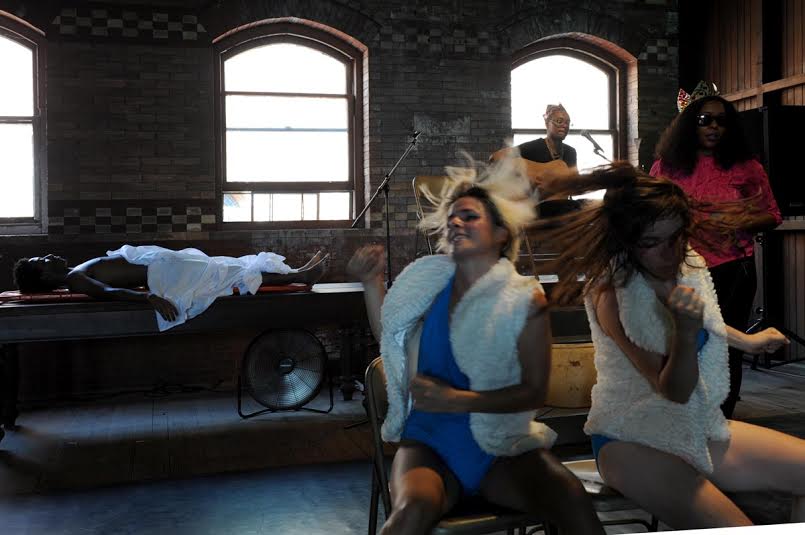
Photo by Dave Christopher
Arielle Pina’s UNARMED confronts the minor daily aggressions of White America that lead to the unnecessary slaying of Black Americans. Two white appropriators (Rebecca Fedele and Evelyn Langley) guide the piece as representatives of the racial divides in American culture, while two black musicians (Alexa Byrd and Will Colella) represent cultural influence and cultural reform. Fedele and Langley move freely and casually throughout UNARMED, unaffected by the haunting presence of the body of a fallen black man (Michael Pusey). In Fedele and Langley’s subtle actions, Pina reveals the ignorance of White America, while Byrd and Colella hold a strong voice of Black America.
Though she deals with a controversial and sensitive subject, which is often met with a response of anger or resistance, Pina is able to create pride without exclusion and show wrongdoing without blame. Pusey, Byrd, and Colella are acknowledged and appreciated when it is convenient for the appropriators, demonstrating how the lives and culture of black Americans are used as tokens that can’t be appreciated until they are taken in and repurposed by white Americans. Pina illustrates how these oppressive acts undermine the value of black Americans; creating a culture that raises our white children to think that racism is something that ended with the civil rights movement while acting in a way that robs so many of their lives and opportunities. By granting us permission to acknowledge without blame the prejudices inside all of us and to accept them as something we have the power to change, UNARMED allows the audience, regardless of race, to leave empowered. [Shiloh Baptist Church, 2031 Montrose Street] September 11-13, 2015; fringearts.com/unarmed.
